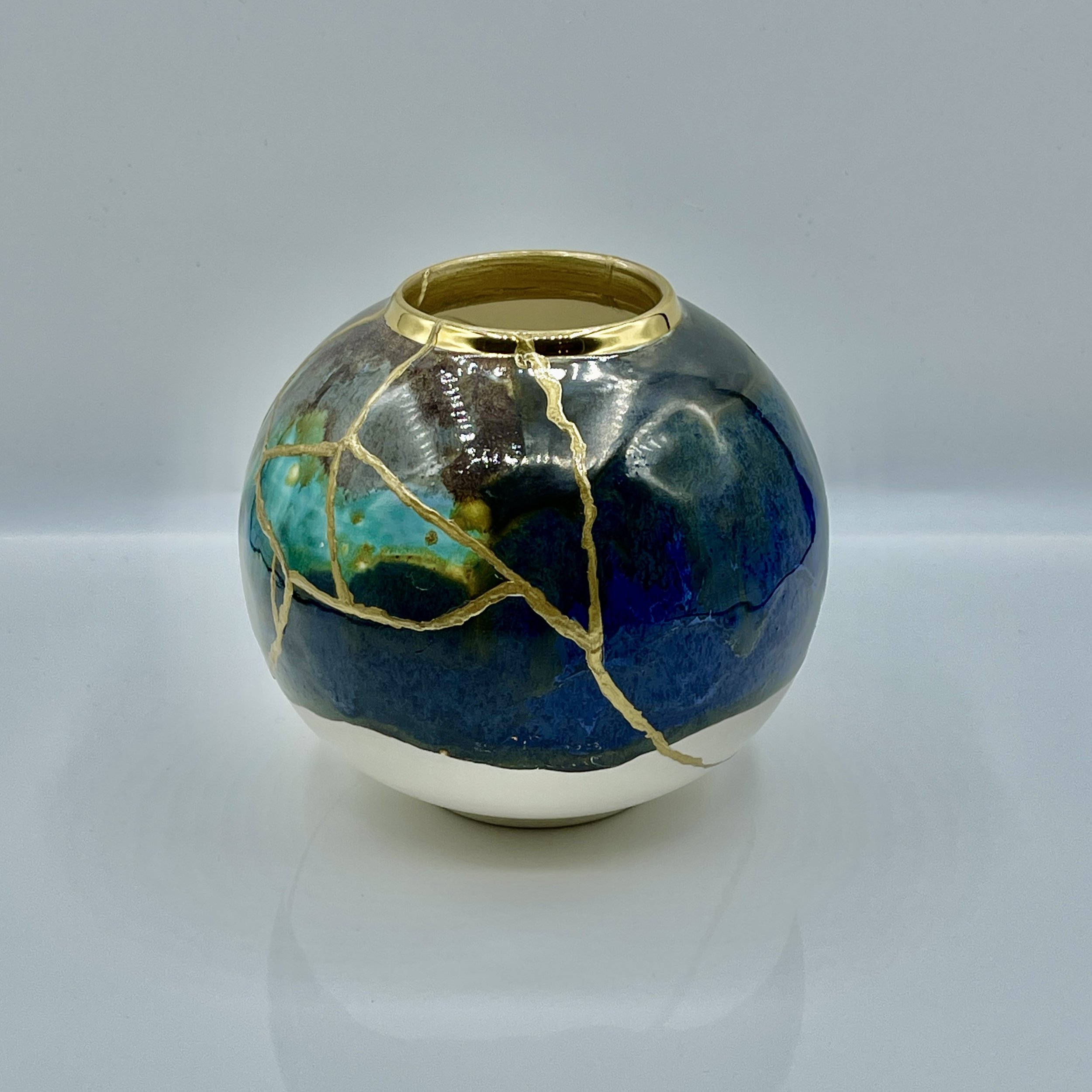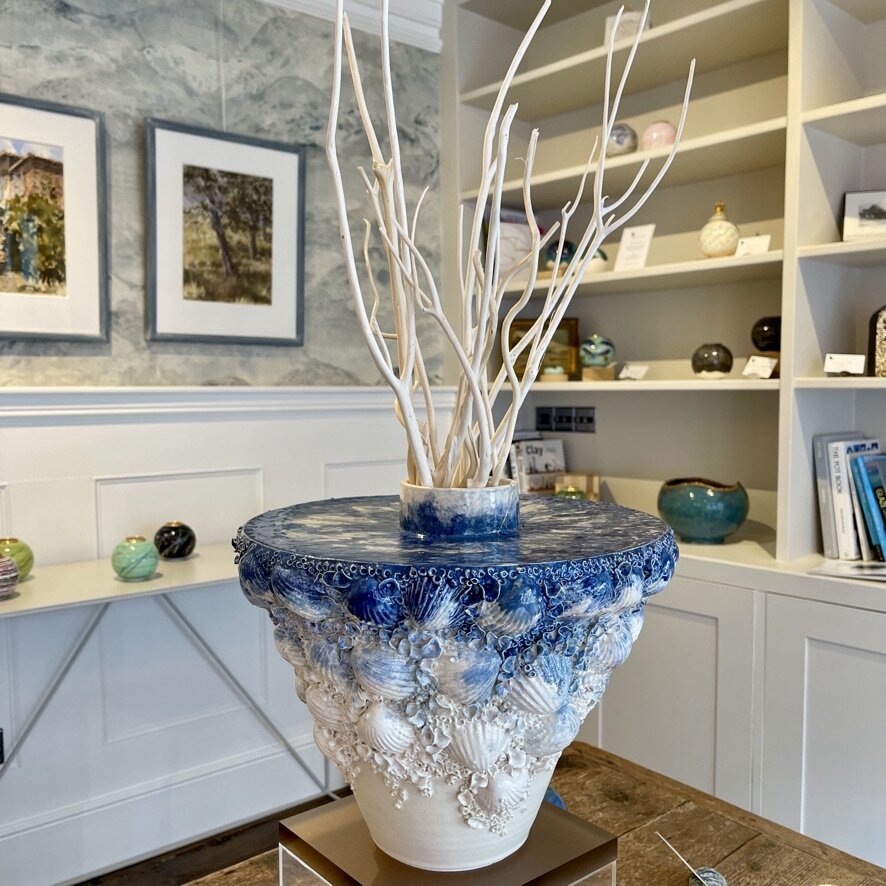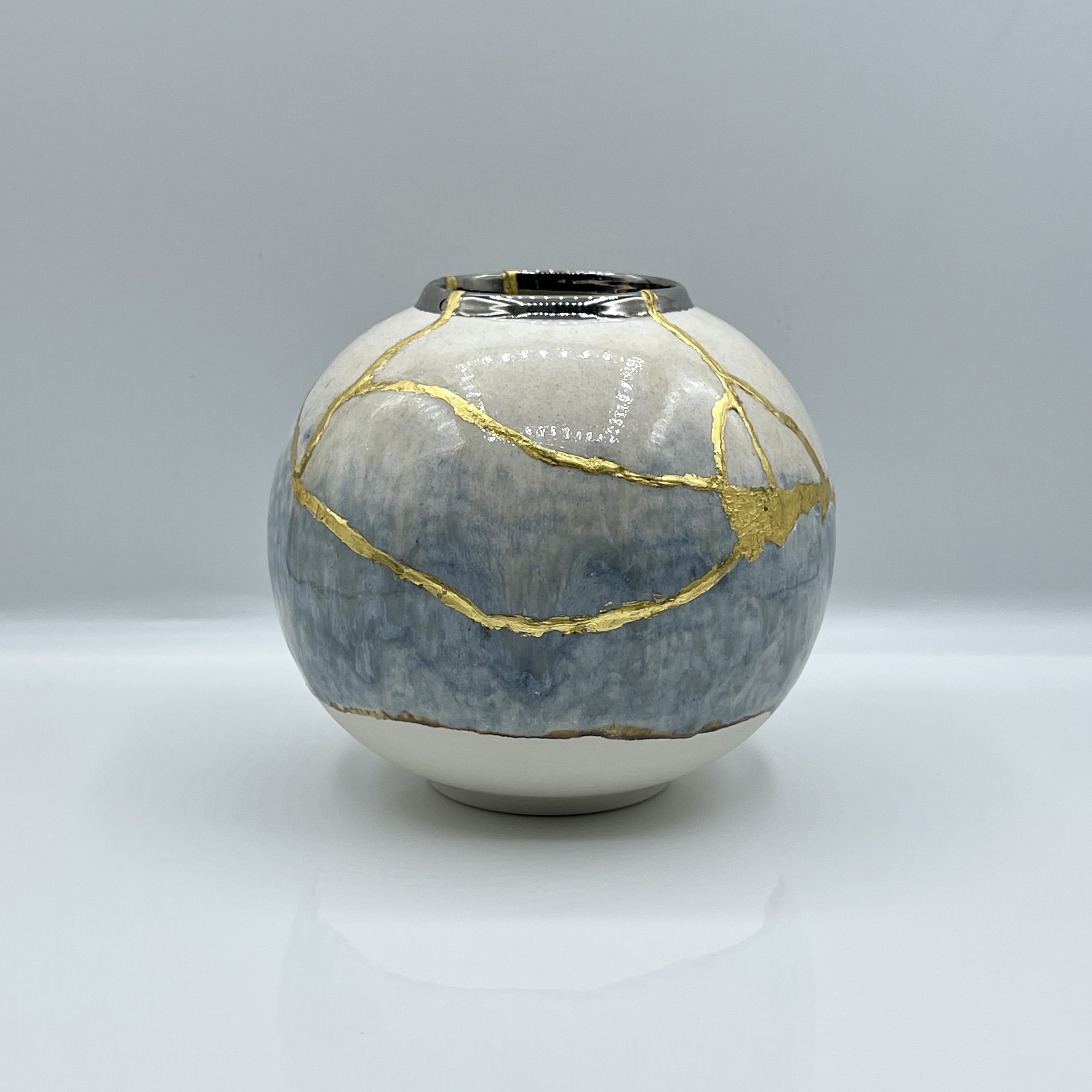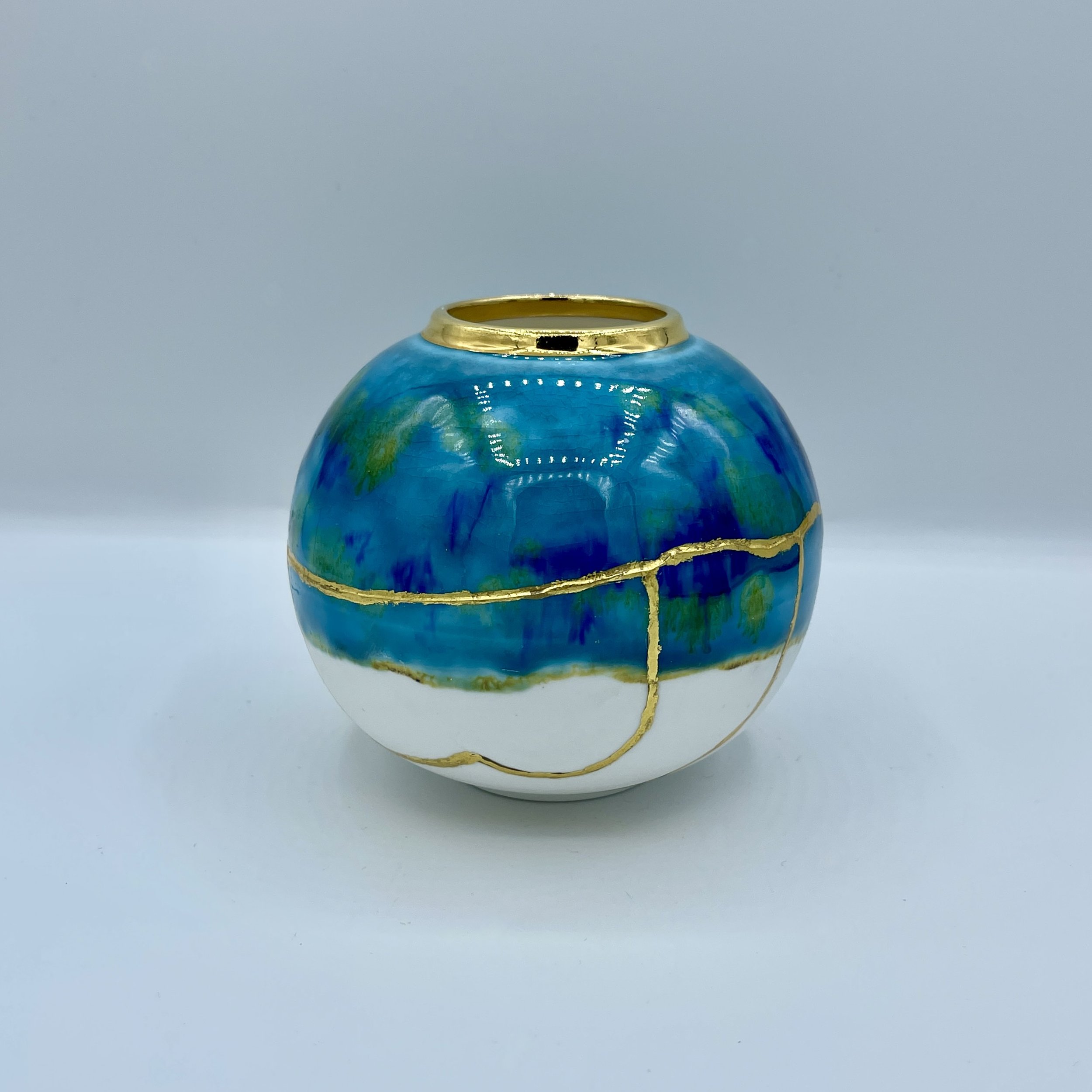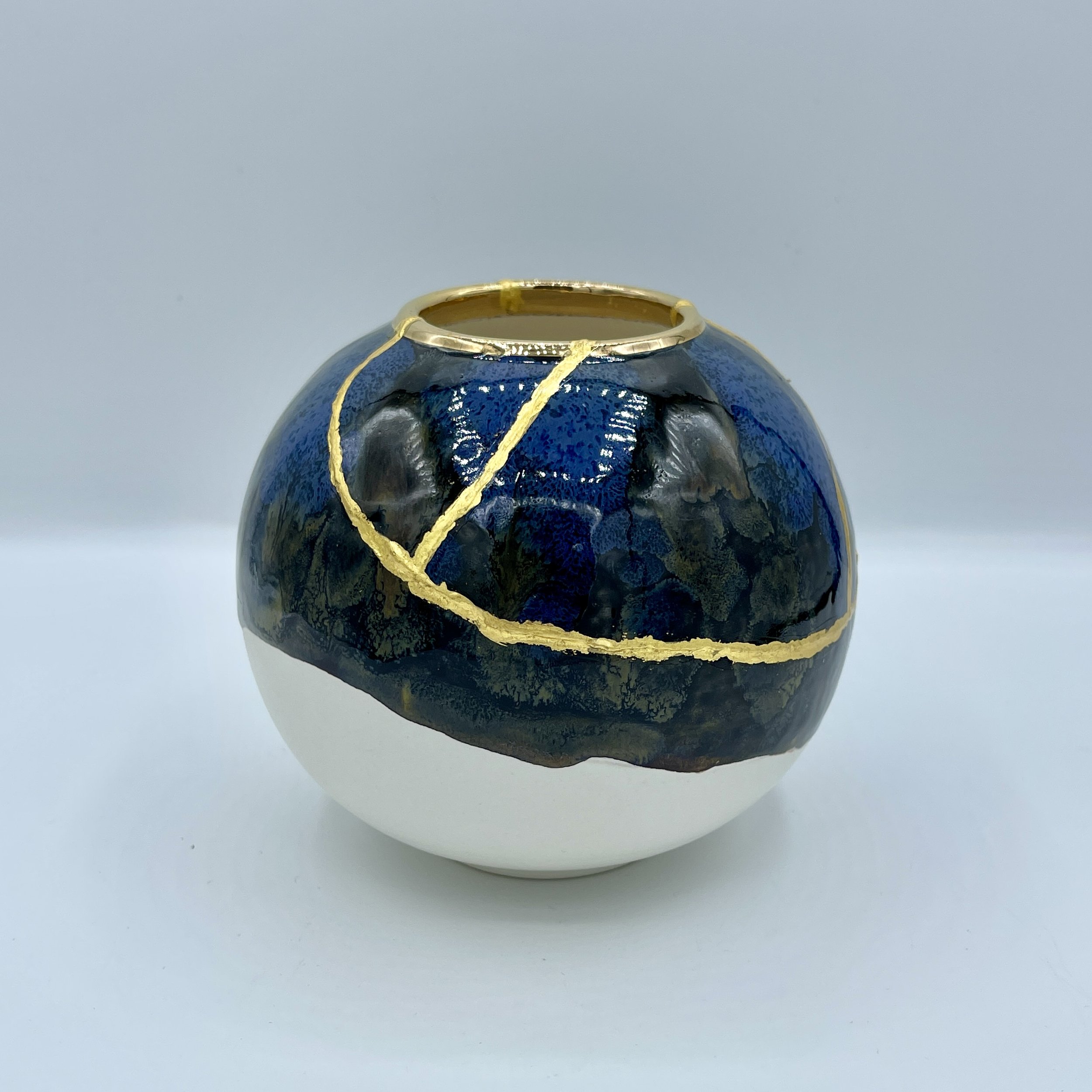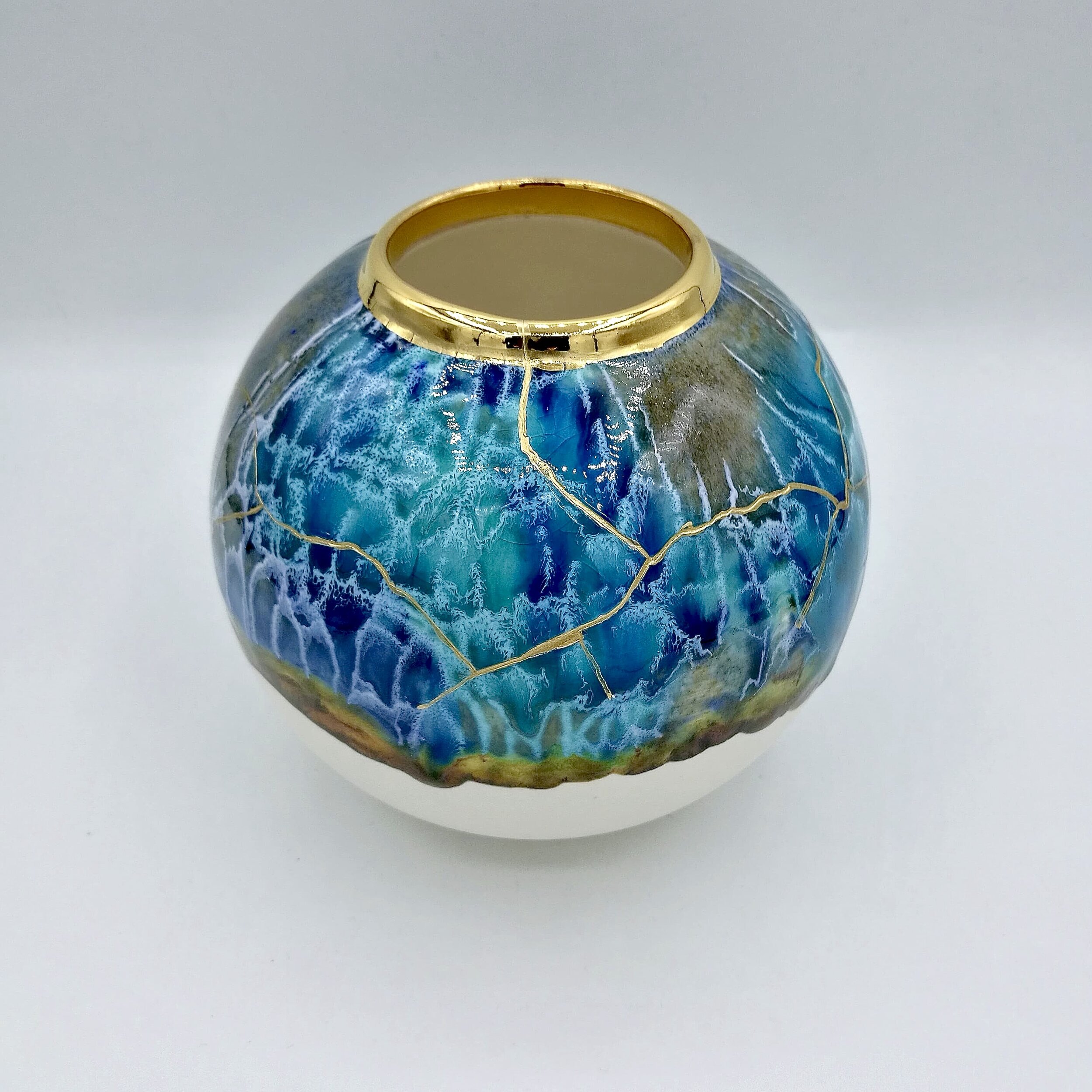 Image 1 of
Image 1 of


Kintsugi turquoise and aventurine Sea GLobe
Dimensions: H: 10.5cms D: 10.5cms
Clay: Earthenware
Technique: Slip cast
Glaze: Turquoise, aventurine and gold
Sculpture / Non Functional
Earthenware Sea Globes are fired many times to create complex glazing designs that have been abstractly inspired by the coastline where I live and work.
This beautiful Sea Globe has panels of coastal blue and turquoise shades. The heavy decorative glazing that covers 60% of the globe has knitted together at high temperature. The globe has a matt transparent glaze inside.
The piece has been finished with gold lustre detailing on the rim and gold leaf highlighting the repairs in the style of Kintsugi.
I complete very few Earthenware Sea Globes due to the success rate being low caused by the multiple firings and complex glazing designs. Each piece is unique and designed purely as a sculptural “objet d’art” and is not functional (i.e. should not be used as a vase)
PLEASE NOTE: This piece is a globe that has cracked during firing and intentionally repaired using the style of Kintsugi highlighting the repairs in gold leaf.
Kintsugi (金継ぎ, "golden joinery"), also known as Kintsukuroi (金繕い, "golden repair"), is the Japanese art of repairing broken pottery by mending the areas of breakage with lacquer dusted or mixed with powdered gold, silver, or platinum, a method similar to the maki-e technique.
Initialled on the base
Dimensions: H: 10.5cms D: 10.5cms
Clay: Earthenware
Technique: Slip cast
Glaze: Turquoise, aventurine and gold
Sculpture / Non Functional
Earthenware Sea Globes are fired many times to create complex glazing designs that have been abstractly inspired by the coastline where I live and work.
This beautiful Sea Globe has panels of coastal blue and turquoise shades. The heavy decorative glazing that covers 60% of the globe has knitted together at high temperature. The globe has a matt transparent glaze inside.
The piece has been finished with gold lustre detailing on the rim and gold leaf highlighting the repairs in the style of Kintsugi.
I complete very few Earthenware Sea Globes due to the success rate being low caused by the multiple firings and complex glazing designs. Each piece is unique and designed purely as a sculptural “objet d’art” and is not functional (i.e. should not be used as a vase)
PLEASE NOTE: This piece is a globe that has cracked during firing and intentionally repaired using the style of Kintsugi highlighting the repairs in gold leaf.
Kintsugi (金継ぎ, "golden joinery"), also known as Kintsukuroi (金繕い, "golden repair"), is the Japanese art of repairing broken pottery by mending the areas of breakage with lacquer dusted or mixed with powdered gold, silver, or platinum, a method similar to the maki-e technique.
Initialled on the base
Dimensions: H: 10.5cms D: 10.5cms
Clay: Earthenware
Technique: Slip cast
Glaze: Turquoise, aventurine and gold
Sculpture / Non Functional
Earthenware Sea Globes are fired many times to create complex glazing designs that have been abstractly inspired by the coastline where I live and work.
This beautiful Sea Globe has panels of coastal blue and turquoise shades. The heavy decorative glazing that covers 60% of the globe has knitted together at high temperature. The globe has a matt transparent glaze inside.
The piece has been finished with gold lustre detailing on the rim and gold leaf highlighting the repairs in the style of Kintsugi.
I complete very few Earthenware Sea Globes due to the success rate being low caused by the multiple firings and complex glazing designs. Each piece is unique and designed purely as a sculptural “objet d’art” and is not functional (i.e. should not be used as a vase)
PLEASE NOTE: This piece is a globe that has cracked during firing and intentionally repaired using the style of Kintsugi highlighting the repairs in gold leaf.
Kintsugi (金継ぎ, "golden joinery"), also known as Kintsukuroi (金繕い, "golden repair"), is the Japanese art of repairing broken pottery by mending the areas of breakage with lacquer dusted or mixed with powdered gold, silver, or platinum, a method similar to the maki-e technique.
Initialled on the base
